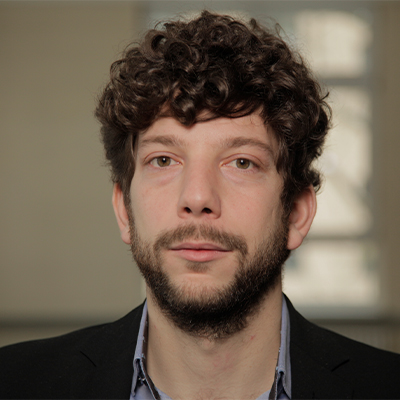Hi from Berlin,
Once upon a time, there was a promise. A promise of freedom, cultural exchange, and uncomplicated and affordable travelling. The promise of Airbnb. People offered a room in their home for a small price, to welcome travellers who didn’t seek the luxurious anonymity of a hotel.
But like in every fairytale, there is a cruel twist: because the promise of easy travelling was so successful, it wasn’t surprising that big money came in to exploit the phenomenon. Today, there are lots of commercial providers who advertise their accommodation via Airbnb, at a time when we face a severe lack of living space, and property prices are increasing.
Many municipalities are trying to improve regulations on the usage of living space for tourists. Not all do, as in the case of Madrid. But Bologna tries to help the students who are central to the identity of the town, and who now have severe problems finding a place to stay. Meanwhile Amsterdam is being abandoned by its inhabitants because they suffer from too many tourists in the city.
Is there anything left of the fariytale’s charm? Get an impression yourself.
Have a good read,
Teresa Roelcke, this week’s Editor-in-Chief
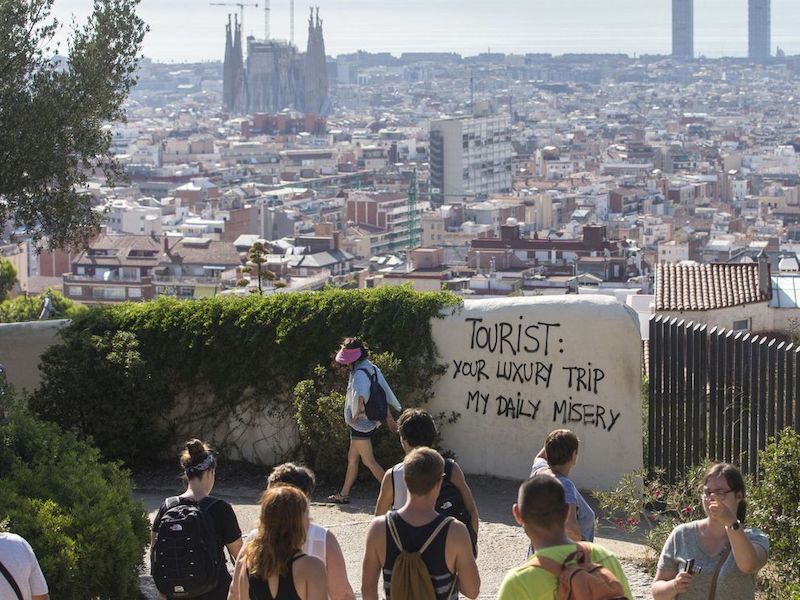
The largest Spanish cities are choosing divergent paths to follow in the future. Madrid and Barcelona face similar challenges, especially in terms of access to housing, rising rents and the explosion of tourist apartments.
This phenomenon is mainly caused by Airbnb, but not only. Even though the diagnosis is similar, the cure for tackling the problem is widely different in the two cities.
Barcelona, in the hands of a former housing activist Ada Colau, has been trying for years to achieve what her supporters call ‘a more liveable city’, with a series of measures limiting the numbers of tourist apartments. Since 2015, the city has imposed a moratorium on the construction of new tourist apartments. Since 2017, the city has established quotas for tourist apartments in the most at-risk areas, limiting the issuing of new licences.
Madrid, which has been in the hands of the conservative PP since 2019, has taken a different path: no regulation of tourist rentals.
The restrictions in Barcelona and the “laissez-faire” attitude in Madrid have had an effect: last February, Madrid registered an increase of 9.3% in tourist apartments compared to the same month in 2022, while Barcelona registered a 25.1% decrease, according to the National Statistics Institute.
But for Barcelona, the problem remains: apart from being one of the most visited cities in Spain, just a month ago a real-estate company found a legal loophole, backed by the Judicial Court, that allowed the firm to transform 140 apartments in the same building into accommodation for tourists. The case caused an uproar and showed one of the biggest problems still facing Barcelona: the limitation of what a city can do without a national strategy.
Meanwhile, the ‘turismofobia’ (hate for tourists) is growing. This is a paradox in the second-most-visited country in the world, where tourism accounts for 12% of the GDP. What the residents are seeing, however, is that neighbourhoods are less occupied by longtime residents… and instead with tourists.

Over 53,000 people moved away from Amsterdam in 2021, according to the central bureau of statistics CBS. That is more than five percent of the total population of the city.
Noise, crowds, dissatisfaction with their neighbourhood, and rising housing costs are among the top concerns cited by locals in a report published by Rabobank. These are “signals that the limit has been reached and liveability is in danger,” admits the municipality.
Amsterdam is seeing a surge in mass tourism (19 million overnight visitors per year), but also a rising population of 921,000 people currently, many of whom are expats willing to pay high rents and house prices.
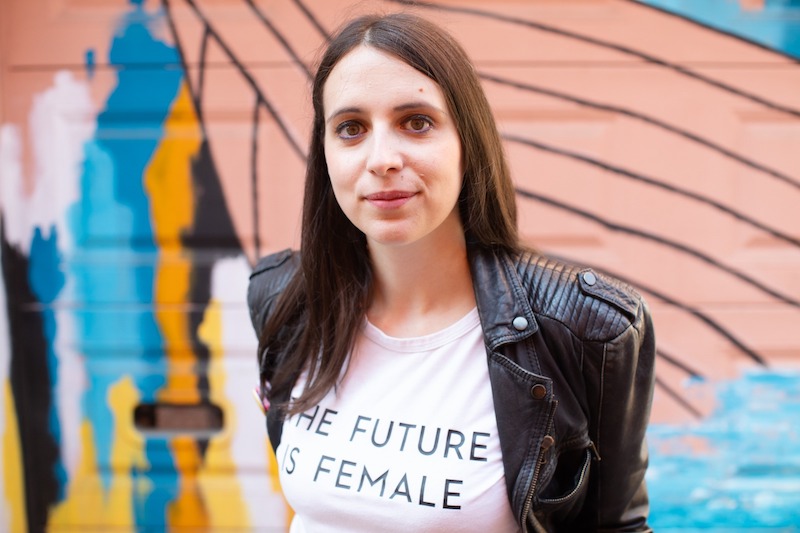
Last week students all over Italy started a “tent protest” against high rents. Bologna is Italy’s university town par excellence: home to the oldest university in the world. Emily Clancy is the deputy mayor of Bologna.
How much does a room in Bologna cost for a student? Is there a housing emergency? Does it infringe on the right to study?
For a room, a student pays on average 400-450 euro per month, and sometimes hundreds more: even 800 euro. Such costs are unsustainable. Before the pandemic, the municipality received fewer than 2,000 applications for rent subsidies. This year, 11,000 have arrived.
I do not call it an “emergency” because I do expect structural answers. Housing is currently a priority for the city: Bologna must be attractive without marginalising or expelling the most vulnerable groups.
Already years ago, as a city councillor and leader of the left-wing movement ‘Civic Coalition’, you promoted a public debate on the impact of Airbnb. What is the role of this platform in the current rental crisis?
Its role is remarkable. Data tell us that the collapse of agreed rental contracts goes hand in hand with the increase in listings on the platforms for short tourist rentals: until 2016 in Bologna there were around 32,000 agreed rental contracts, today they are down to 26,000. In the same years, listings on Airbnb have risen from around 800 to over 4,000 today.
Now that you are in government in Bologna, which initiatives are you taking to tackle Airbnb and rentals? And what has Giorgia Meloni’s government done?
The sporadic resources that used to come for the rent subsidy have been completely cut by this government. We have presented a plan for the right to housing which is unparalleled in Bologna’s recent history: it contains a 200 million euro package with which we intend to finance many strategies, from creating a social renting agency to renovating our public housing stock and regenerating abandoned urban sites.
The aim is to convert unused places and to reshape them as a common good. We cannot regulate Airbnb directly, as Barcelona has done. So what we are doing is promoting a municipalist alliance with ten other cities like Milan and Naples, and exerting political pressure together for a national law to regulate such platforms.
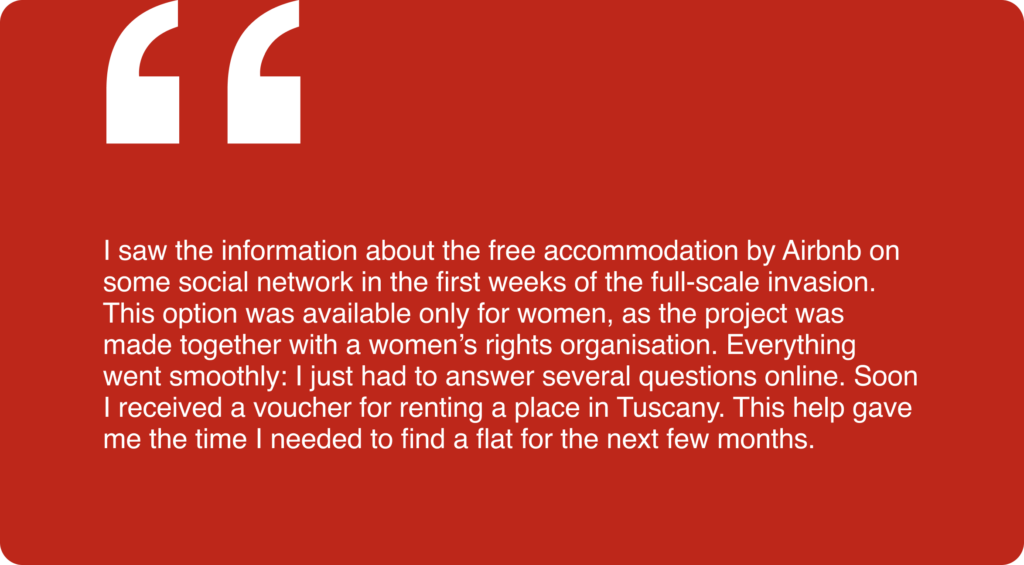
Zoya Lobod, Kyiv entrepreneur
Soon after Russia’s full-scale invasion of Ukraine, online lodging marketplace Airbnb declared it would provide help for up to 100,000 Ukrainian refugees in Europe, US and Canada. The San Francisco-based company offered vouchers for up to €2,000, to be used for renting a place for up to 14 days.
According to Airbnb’s website, 100,000 people took up the offer, but we don’t know how much Airbnb profited from its generous action PR-wise.
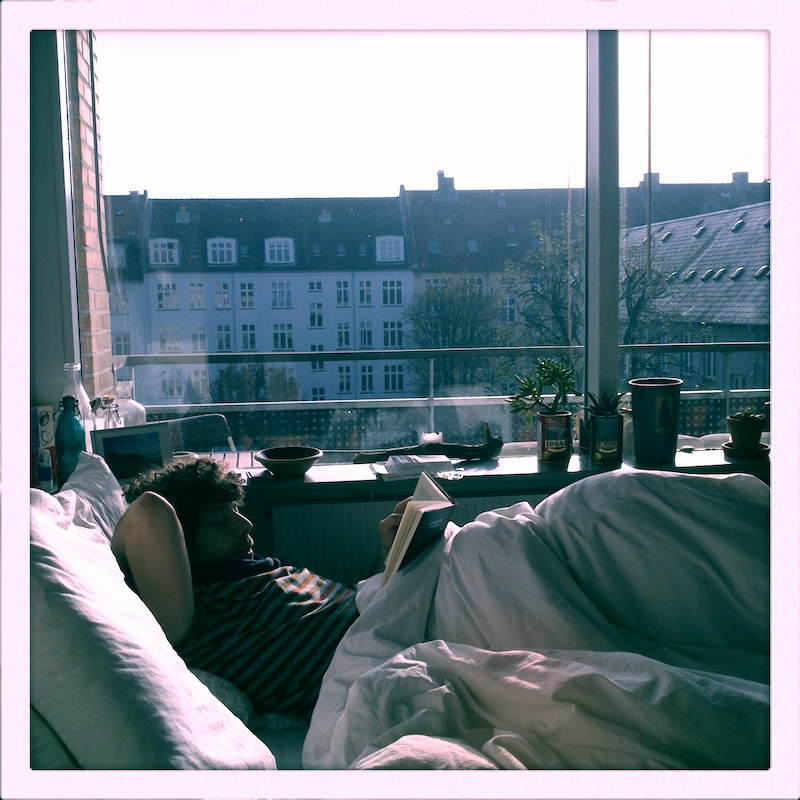
Airbnb’s claim “Belong anywhere” may sound like one of those slogans that are so generic they become meaningless. For me, this kind of travelling absolutely kept what it promised.
On a trip to Copenhagen for my girlfriend’s birthday in 2014, we got sick and spent five days almost completely in a one-room student apartment. It was great! We felt very Danish, lying in bed behind large uncurtained windows, looking at brick-lined buildings, seagulls and cyclists, and sitting on simple yet classy chairs, which we considered buying for ourselves.
The laundry of our host, Lotte, was standing in a corner to dry. And when she accidentally came home a day early, it felt even more like we had made ourselves comfortable in someone else’s life.
By the way, would you have guessed that many Danes have windowless one square-metre bathrooms where the whole “room” gets wet when showering, while you concentrate on not tripping over the toilet? These are the kind of things that Airbnb taught me.
Many hosts were young adults like Lotte who handed over the keys to their flats, threw a large backpack over their shoulders, and left to sleep at their lover’s or parents’ place for a few days, in order to earn some extra cash.
Communicating beforehand, it was not unusual to exchange some personal background. It felt like texting a friend of a friend. Hosts’ recommendations helped us come as close as it gets for tourists to “really” get to know a city. Airbnb was part of how I wanted to travel.
I still book Airbnbs occasionally, but I can’t recall when I last felt like I stayed at someone’s home. Keys are left in boxes with number codes, the furniture is functional, but generic. Quite obviously no-one lives in these flats, and they’re not even cheap any more.
Airbnb has become just another site for booking holiday apartments. Given the many negative effects for popular destinations, it might just as well go away for good.
Thanks for reading the 30th edition of European Focus,
What are the experiences with Airbnb in the places where you live? Would you call for stricter regulations? We are curious to read what you think. If you want to tell us, write an email to info@europeanfocus.eu.
See you next Wednesday!
Teresa Roelcke







